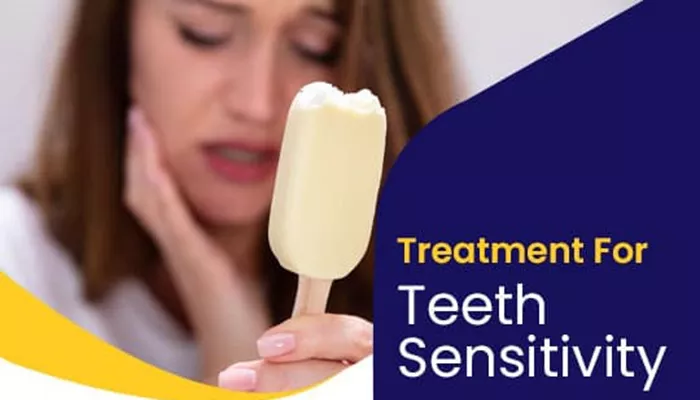Teeth whitening is a popular cosmetic dental procedure that many people choose to enhance their smiles. While it can effectively brighten teeth and remove stains, some individuals experience tooth sensitivity as a side effect. Understanding when this sensitivity will subside is essential for anyone considering or undergoing teeth whitening. In this article, we will explore the causes of sensitivity after teeth whitening, how long it typically lasts, and what you can do to manage it effectively.
What Is Tooth Sensitivity?
Tooth sensitivity, also known as dentin hypersensitivity, occurs when the tooth’s inner layer, called dentin, becomes exposed. This exposure can happen for various reasons, including gum recession, enamel erosion, or dental procedures like teeth whitening. Sensitivity can manifest as sharp pain or discomfort when consuming hot, cold, sweet, or acidic foods and beverages.
Causes of Sensitivity After Teeth Whitening
Teeth whitening products often contain bleaching agents such as hydrogen peroxide or carbamide peroxide. These agents work by penetrating the enamel and breaking down stains. However, this process can also lead to temporary sensitivity for several reasons:
Enamel Permeability: The whitening agents can temporarily increase the permeability of the enamel. This allows stimuli (like temperature changes) to reach the nerve endings in the tooth more easily, leading to sensitivity.
Dentin Exposure: If the enamel is already thin or compromised, the whitening process can expose the underlying dentin.
This exposure can cause discomfort, especially during the whitening treatment.
Chemical Irritation: The active ingredients in whitening products can irritate the nerves inside the teeth, resulting in sensitivity.
Overuse of Whitening Products: Using whitening products too frequently or for extended periods can exacerbate sensitivity. It’s essential to follow the recommended guidelines for use.
see also: How To Protect Gums During Teeth Whitening
Duration of Sensitivity After Teeth Whitening
The duration of sensitivity after teeth whitening varies from person to person. However, several factors can influence how long sensitivity lasts:
Type of Whitening Treatment: Different whitening methods can lead to varying levels of sensitivity. For instance, in-office treatments may cause more immediate sensitivity than at-home whitening kits.
Concentration of Bleaching Agents: Higher concentrations of hydrogen peroxide or carbamide peroxide can increase the likelihood and duration of sensitivity.
Individual Factors: Each person’s dental health, enamel thickness, and sensitivity levels can affect how long discomfort lasts.
Typical Timeline for Sensitivity
Immediately After Treatment: Many individuals report experiencing sensitivity right after the whitening procedure. This sensitivity can be mild to moderate and usually occurs when consuming hot or cold foods and beverages.
First 24 to 48 Hours: Sensitivity often peaks within the first 48 hours after treatment. During this time, individuals may experience heightened discomfort, especially with temperature changes.
3 to 7 Days: For most people, sensitivity begins to subside within three to seven days after the whitening treatment. By this time, the enamel’s permeability decreases, and the nerves become less reactive.
1 to 2 Weeks: In general, sensitivity should resolve within one to two weeks after the whitening procedure. However, some individuals may continue to experience mild sensitivity for an extended period.
Managing Sensitivity After Teeth Whitening
If you experience sensitivity after teeth whitening, there are several strategies you can employ to manage discomfort:
Use Desensitizing Toothpaste: Desensitizing toothpaste contains compounds that help block the transmission of sensations from the tooth surface to the nerve. Using this type of toothpaste before and after whitening can help reduce sensitivity.
Avoid Extreme Temperatures: For the first few days after whitening, try to avoid very hot or cold foods and beverages. Stick to lukewarm options to minimize discomfort.
Limit Acidic Foods: Acidic foods and drinks can exacerbate sensitivity. Avoid citrus fruits, vinegar, and carbonated beverages during the initial recovery period.
Practice Good Oral Hygiene: Continue to brush and floss your teeth regularly. Maintaining good oral hygiene can help prevent additional sensitivity and promote overall dental health.
Use a Soft-Bristled Toothbrush: A soft-bristled toothbrush can help reduce irritation to sensitive teeth and gums. Be gentle when brushing to avoid further discomfort.
Follow Instructions Carefully: If you are using at-home whitening products, follow the manufacturer’s instructions closely. Overuse can lead to increased sensitivity.
Consult Your Dentist: If sensitivity persists or worsens, contact your dentist for advice. They may recommend alternative whitening methods or additional treatments to alleviate discomfort.
Preventing Sensitivity During Teeth Whitening
To minimize the risk of experiencing sensitivity during teeth whitening, consider the following preventive measures:
Consult Your Dentist: Before starting any whitening treatment, consult your dentist. They can assess your dental health and recommend the most suitable whitening method for you.
Choose the Right Product: Select whitening products that are specifically designed for sensitive teeth. These products often contain lower concentrations of bleaching agents and additional desensitizing ingredients.
Follow a Gradual Approach: If you are using at-home whitening products, consider starting with a lower concentration of the bleaching agent and gradually increasing it as your teeth adjust.
Limit Frequency of Use: Avoid using whitening products too frequently.
Give your teeth time to recover between treatments.
Maintain Good Oral Health: Regular dental checkups and cleanings can help ensure your teeth and gums are healthy before undergoing whitening treatments.
Conclusion
Teeth whitening can significantly enhance your smile, but sensitivity is a common side effect that many individuals experience. Understanding the causes of sensitivity, how long it typically lasts, and effective management strategies can help you navigate the whitening process more comfortably.
For most people, sensitivity after teeth whitening subsides within one to two weeks. However, if you experience prolonged or severe sensitivity, it is essential to consult your dentist for guidance.

